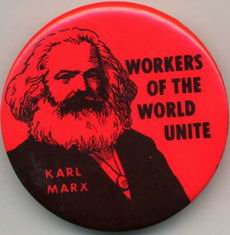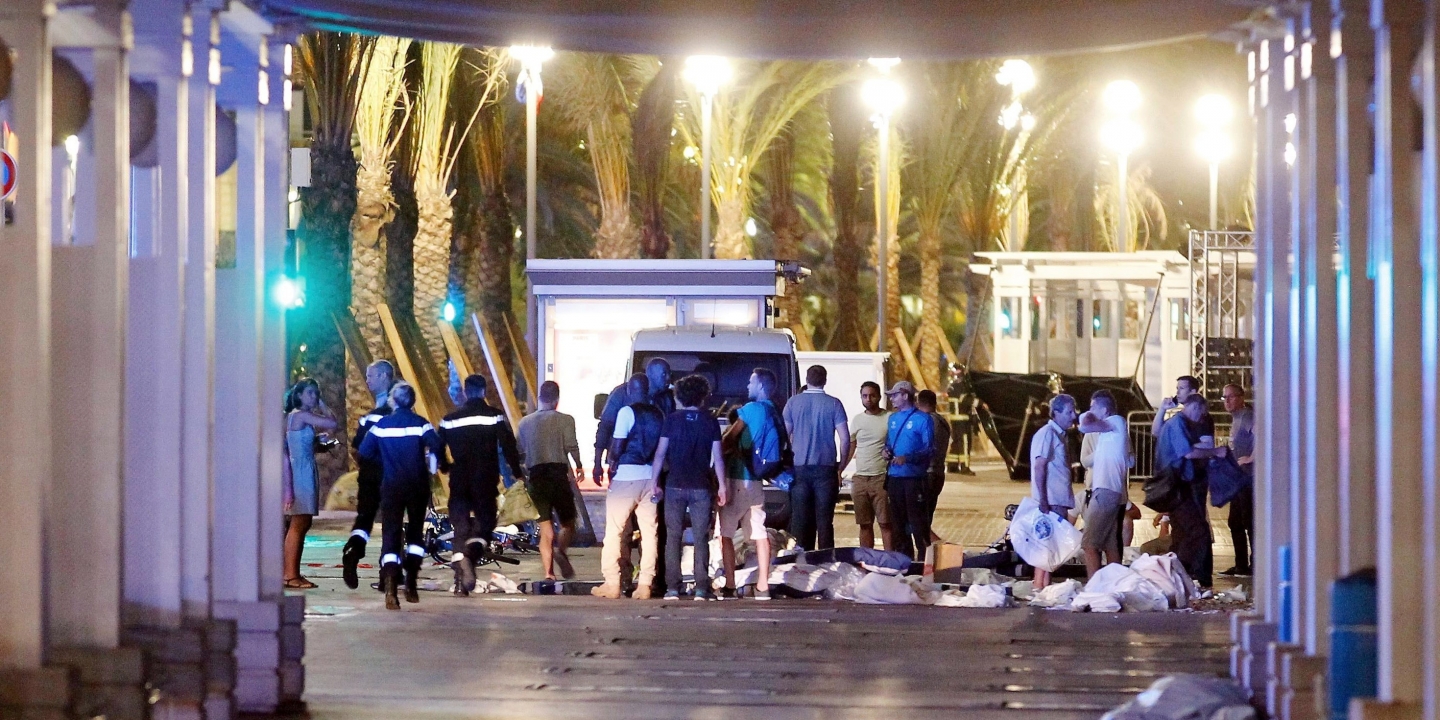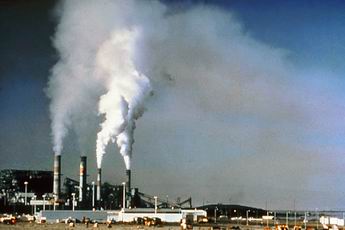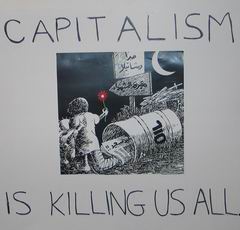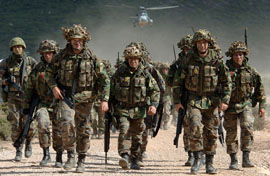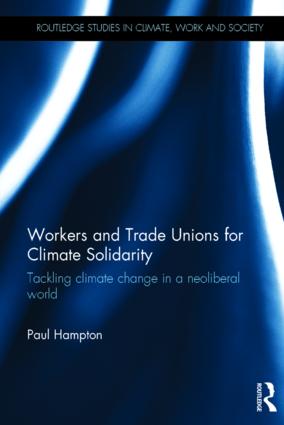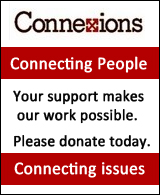Other Voices: The Connexions Newsletter
July 23, 2016
This issue: Workers and Climate Change
Working people – and most of us are workers -- are affected by climate change in every aspect of our lives. As climate change worsens, our lives will worsen. If we are successful in bringing about the needed rapid change away from a fossil fuel based economy, working people are the ones who stand to bear most of the costs, including the cost, for millions of workers and their families, of losing their jobs.
Many elements of the environmental movement have been guilty of ignoring working people, while others actually blame ordinary working people for climate change and the injustices associated with it. Yet it is working people who are dying, in many places, even now, from excessive heat in factories, fields, construction sites, and homes. And million of working people stand to lose their jobs, homes, and communities in the transition to a low-carbon or no-carbon economy. It is rare for groups involved in the climate change movement to acknowledge this reality, let alone to develop plans for a just transition to a new economy, a transition that supports and helps those who will be most affected.
There is another, even more crucial reason, for putting the working class at the centre of a strategy for climate justice and economic transformation: the working class is the only social force with the potential power to bring about the radical changes we need to slow and stop accelerating climate change. A strategy that ignores the working class – the majority of the population – is a strategy for failure. In this issue of Other Voices, we present articles and resources which address the crucial role of the working class in halting climate change and transforming society.
As always, we invite you to share this newsletter with your friends. You can forward this email, or send them the link to the Other Voices home page on the Connexions website at www.connexions.org/Media/CxNewsletter.htm.
If you'd like to subscribe and receive this newsletter by email every two weeks, please use this form.
Your feedback is appreciated - and so are donations to keep us doing what we're doing!

Topic of the Week
Working Class and Climate Change
The working class is the only social force with the potential power to bring about the radical changes we need to slow and stop accelerating climate change. Find articles and books about the working class and climate change in the Connexions Subject Index here
This Week on Connexions.org
After Nice, Don't Give ISIS What It's Asking For
According to Murtaza Hussain, "from both a strategic and moral perspective, the worst thing that could be done in response to the horror of incidents like Nice would be to give ISIS what it says it wants: polarization and communal hatred. Proposals for ethnic cleansing or 'civilizational war' may satisfy a desire to project toughness, but in reality, they feed into the group’s narrative of a world irrevocably divided along religious lines. Western Europe has faced down greater waves of terrorism in the past without giving into the strategy of the terrorists or sacrificing its intrinsic values. The crisis of the Islamic State will require a similar degree of steadfastness. But only by recognizing the trap it has set can we avoid inflicting a defeat on ourselves far worse than a desperate, fanatical insurgent group could ever hope to achieve on its own." Read more
Keywords: Divide and conquer - ISIS (Daesh)
Getting Serious about keeping fossil fuels in the ground means getting serious about a just transition
The urgency of the climate emergency makes it equally urgent to develop strategies for a just transition. What happens to the millions of working families who are currently depending on incomes from jobs in and related to the fossil fuel industry? And what happens to communities whose economies rely on income from the fossil fuel industry and the low income workers as revenue dries up and energy costs rise? Many climate justice organizations have adopted messaging about a ‘just transition’ but most have failed to develop any ideas about what that would actual mean. Read more
Keywords: Just Transition - Working Class & Climate Change
Making Green Jobs Good Jobs
Jobs versus the environment -- it's an old dilemma that pits unions seeking work for their members against activists rallying against projects like the Keystone XL. An expanding renewable energy sector might provide a way out of this quandary. Solar and wind energy projects can put people to work without imperiling the planet. But will these jobs be friendly to workers, as well as the environment? Read more
Keywords: Job Transition - Working Class & Environmental Issues
As Temperatures Climb Across the Country, Workers Will Suffer
Serious illness and death caused by extreme heat in the workplace are not new, but as the planet continues to heat up, the dangers are increasing and more workers are dying because of heat. Read more
Keywords: Global Warming – Workplace Health & Safety
Canada's Liberal Government Joins NATO's War Escalation
The recent NATO summit in Warsaw made clear the military alliance’s determination to pursue a course of confrontation with Russia. Deliberate provocations, and aggressive military measures, including the placement of missiles, warships, planes, and troops on Russia’s borders are under way. Canada’s Liberal government has made it clear that it is continuing the militaristic foreign policy of the Harper regime. Read more
Keywords: NATO - Militarism
Website of the Week
Green Left Weekly
An independent Australian publication and Web site committed to human and civil rights, global peace and environmental sustainability, democracy and equality, providing local, national and international news, analysis, and discussion and debate to strengthen the anti-capitalist movements. Visit Green Left Weekly here
Keywords: Ecosocialism - Green Movement
Book of the Week
Workers and Trade Unions for Climate Solidarity
By Paul Hampton
Paul Hampton, a Marxist trade union researcher in Britain, addresses the role of workers in the climate justice movement. Hampton posits waged workers and organized labour as essential starting points for developing a climate counter-power, a working class based movement to fight for a "just transition" to an ecologically sustainable society.
He argues that the international working class has the social power to overthrow capitalism and to reorganize production under different imperatives -- such as to meet social needs and to respect ecological limits.
While recognizing the oppression and market coercion of exploited groups such as indigenous peoples, peasants and the self-employed, Paul's view is that the location of working class within capitalist relations of production makes it the agent with both the power and the interest to modify and stop capitalist production, ultimately to overthrow it. More info here
For a review of Hampton’s book, see here
Keywords: Working Class & Climate Change - Working Class & Environmental Issues
Organizing
Tony Mazzochi Lives: Blue-Green Organizer takes up the ‘just transition’ mantle
There is a urgent need for the environmental movement and the labour movement to work together. This requires seriously addressing the question of what happens to the working people whose jobs depend on the current economic system, the system we have to replace. Read more
Keywords: Working Class & Climate Change - Just Transition
People's History
Learning to struggle: My story between workerism and feminism
Leopoldina Fortunati, an Italian Marxist feminist recounts her experiences in the autonomist and feminist movements in Italy in the 1970s. Read more
Keywords: Italy - Marxism and Feminism
From the Archives
The Koori History Website Project
Information on Black Australia’s 240 years of struggle for justice. Includes resources for students, a timeline of indigenous resistance, images of Koori history, a newspaper archives, and audio materials. See more
Keywords: Aboriginal History - Australia
Connexions Calendar
July 23 – Philadelphia
The People's Convention
A grassroots attempt to reclaim our democracy by uniting behind a common policy framework, rather than a personality or party.
July 25 - 28 – Philadelphia
Carrying Forward the Political Revolution – Socialist Convergence
“What’s next for the movement? How do we make a political revolution in this country?” In recognition of the historic opportunity afforded by this political moment, a number of socialist organizations are planning a series of “Socialist Convergence” assemblies: meetings, panels, and workshops to take place concurrently to the Democratic National Convention (DNC) in Philadelphia, from July 25th to July 28th.
August 9 - 14 – Montreal
World Social Forum
We invite citizen’s movements from around the world to make the next World Social Forum (WSF) a meeting essential for sharing our mobilizations, our resistance and for strengthening our struggles. We want the WSF in Montreal to be not only a place for sharing broad guidelines but also be a space that allows social movements to put forward political responses that can change the course of history.
The Connexions Calendar is an online calendar that exists to advertise events that support social justice, democracy, human rights, ecology, and other causes. We invite you to use it to promote your events. Adding events to the Connexions Calendar is FREE. We'll give you a username and password which you use to log on. Use the contact form to arrange for a username and password. Read more →
Seeds of Fire
July 24, 1941
Arvida Strike
700 workers at the Aluminium Co. of Canada (Alcan) plant in Arvida, Quebec spontaneously walk off the job. The next day the strike spreads to 4500 workers, who decide to occupy the plant.
July 26 - 29, 1830
Revolt in Paris
Unhappy with the results of the recent election, French King Charles X dissolves Parliament. In response, Paris workers head to the barricades, while soldiers refuse to put down the insurrection. Three days later, the King is forced to abdicate.
July 27, 1918
Killing of Ginger Goodwin
United Mine Workers organizer Ginger Goodwin is shot and killed by a private cop near Cumberland, British Columbia. On August 2, workers in Vancouver hold a one-day general strike to protest his murder.
July 31, 1905
Maji Maji Rebellion
An uprising erupts in Tanganyika (now Tanzania) against German colonial rule. Germany, determined to extract as much profit as possible from its colony, had instituted a policy of forcing villagers to grow cotton for export, rather than food for their own use. They also conscripted men into forced labour on building roads and other amenities for the occupiers. The rebellion lasts until 1907, when it is finally crushed, and results in the deaths of hundreds of thousands of people
August 1, 1914
Start of the Great War (World War I)
Europe’s imperialist powers set out to conquer each other. By the time the war ends, more than four years later, more than 16 million people will have died, and more than 20 million will have been wounded. Billed as “the war to end all wars”, World War I also sets in motion the conflicts that will result in World War II.
August 1, 1944
Warsaw Uprising
The Polish resistance starts a nation-wide uprising against the Nazi occupation forces, with Warsaw as the key centre of operations. The uprising is intended to last a few days until the Soviet Red Army reaches Warsaw, but the Red Army fails to move forward and the rebels are left on their own. The uprising continues for 63 days until it is finally crushed by the Nazis. An estimated 16,000 Polish resistance fighters are killed, and between 150,000 and 200,000 civilians are killed, most of them slaughtered by German reprisals.
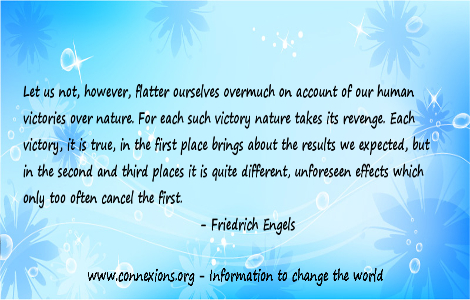
Your support is needed to keep Connexions going
All of the work of the Connexions project is done by volunteers, but our expenses include rent, phone and computer costs and technical support, as well as expenses related to our ongoing project of converting printed archival materials into digital formats. You can make a one time or regular monthly contribution through the donate page on the Connexions website.
Bequests
Many of us have made working for social justice a lifetime commitment. If you are thinking about leaving a legacy for social justice that will live on, you might want to consider leaving a bequest to Connexions in your will. If you'd like to discuss this option, please contact us or see the Bequest page.

